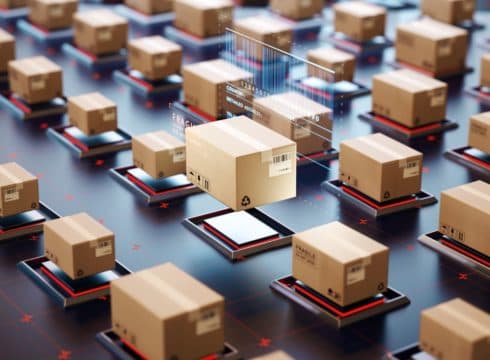Savvy businesses have been experimenting with multiple disruptive technologies
Two disruptive technologies simply stand out--Machine Learning and IoT
IoT-enabled devices have been increasing at a fast pace and are forecasted to reach up to 30 Bn by 2020
Inc42 Daily Brief
Stay Ahead With Daily News & Analysis on India’s Tech & Startup Economy
The need to deliver on rapidly evolving customer expectations and simultaneously ensure profitability are driving businesses to rethink the way they have been executing supply chain and logistics operations. Achieving this twin objective is not easy.
To address this, savvy businesses have been experimenting with multiple disruptive technologies for quite some time now, hence opening the doors to solutions that are driven by technologies like machine learning, the Internet of Things (IoT), automation, data analytics and more.
From enabling real-time monitoring and visibility of ground-level activities, improving productivity to reducing operational expenses, these technologies have been effectively streamlining core supply chain and logistics processes and making them more efficient. With regard to this, two disruptive technologies simply stand out are Machine Learning and IoT.
Internet of Things (IoT)
The world of logistics has now been exposed to a vast pool of smart Iot-enabled devices. The number of these IoT-enabled devices has been increasing at a fast pace and is forecasted to reach up to 30 Bn by 2020. The deployment of IoT powered solutions will continue to transform and modernize the supply chains by enhancing the operational efficiencies and increasing visibility.
Even some 5-6 years back, tracking and tracing vehicles in real-time that travelled through poorly connected areas was a big challenge. Poor visibility resulted in a series of problems. There were unnecessary delays and diversions. Vehicle idling time went unchecked. Drivers took unscheduled breaks. The chances of theft and pilferage spiked. Poor visibility also impacted customer transparency. They barely knew when will they receive their shipment and why there were delays. But things have changed for the better now.
Today, advanced supply chain and logistics platforms powered by IoT and advanced GPS tracking technology are empowering enterprises to eliminate all these bottlenecks by providing supply chain and logistics stakeholders with end-to-end visibility of delivery and transportation operations and this resulted in reduced costs, timely deliveries, and enhanced customer experience.
Data generated by IoT devices can be a game-changer for enterprises. Modern supply chain and logistics platforms easily absorb the data generated by IoT devices and display the same in a simple and graphical way on engaging dashboards. This helps supply chain and logistics stakeholders quickly take actions on inconsistencies, drive data-driven decision making and keep a close eye on delivery KPIs.
IoT has immense potential to transform the supply chain and logistics industry. As it becomes more mainstream, we will witness a plethora of unique use cases.
Machine Learning (ML)
Machine Learning, an important member of the AI-family, is another technology that’s bringing in never before seen efficiencies in the world of supply chain and logistics. Machine learning is empowering enterprises to build supply chain and logistics processes that are proactive and are driven by predictive intelligence and data.
Traditionally, while planning routes logistics stakeholders struggled to unearth the most efficient path from point A to point B. Also, there were barely any means to foresee any risks that lay ahead in a route. That was yesterday. Now, modern logistics platforms leverage machine learning algorithms to analyze historical data of already travelled routes before generating the most efficient route.
Machine learning quickly analyses past incidents of thefts and pilferage, delays on a particular route and other KPIs before generating a route. In fact, using machine learning we have empowered a large mining business reduce risks by 57% and this translated into millions of dollars saved in the guise of thefts being averted. Machine learning also helps businesses allocate tasks based on driver availability and proximity. It can intelligently outsource delivery jobs to third-parties based on the cost incurred.
Businesses that have adopted Machine Learning at early stages of their operations have been able to make accurate predictions and have therefore experienced significant improvements in their outcomes, earning gross margin growth of up to 9%.
The use of these two powerful technologies has the utmost potential to reshape the dynamics of the logistics industry. Clearly, we foresee a yet brighter future of the businesses worldwide, with supply chains taking a stronger grip.
{{#name}}{{name}}{{/name}}{{^name}}-{{/name}}
{{#description}}{{description}}...{{/description}}{{^description}}-{{/description}}
Note: We at Inc42 take our ethics very seriously. More information about it can be found here.


